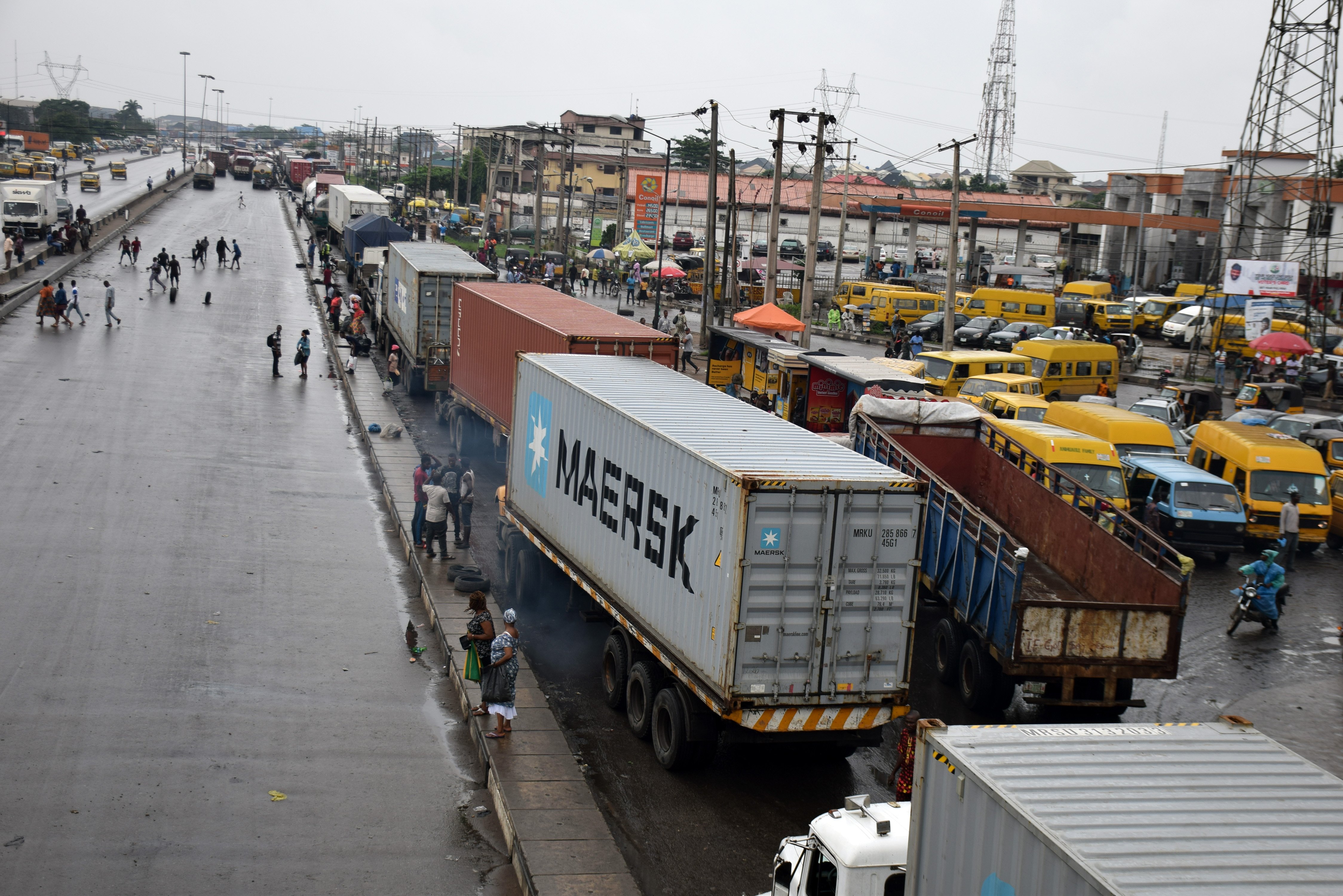Apapa, a local government area in Lagos, is home to Nigeria’s largest and busiest port complex, and has over the years been synonymous with “gridlock”. Hundreds of articulated vehicles stuck on road as they wait endlessly to gain access into the Tin Can Island port. Several solutions adopted in the past, only worsened the situation.
On February 27, the Nigeria Ports Authority (NPA) commenced the use of an electronic call-up system at the Apapa and Tin Can Island ports.
Hadiza Bala Usman, managing director of NPA, had said the call-up system which is powered by a web application called “Eto” will “put an end to the perennial logjam caused by articulated trucks within the port corridor.”
A visit by TheCable to Apapa showed that the use of call-up system has commenced, easing traffic at the nation’s busiest ports.
Advertisement
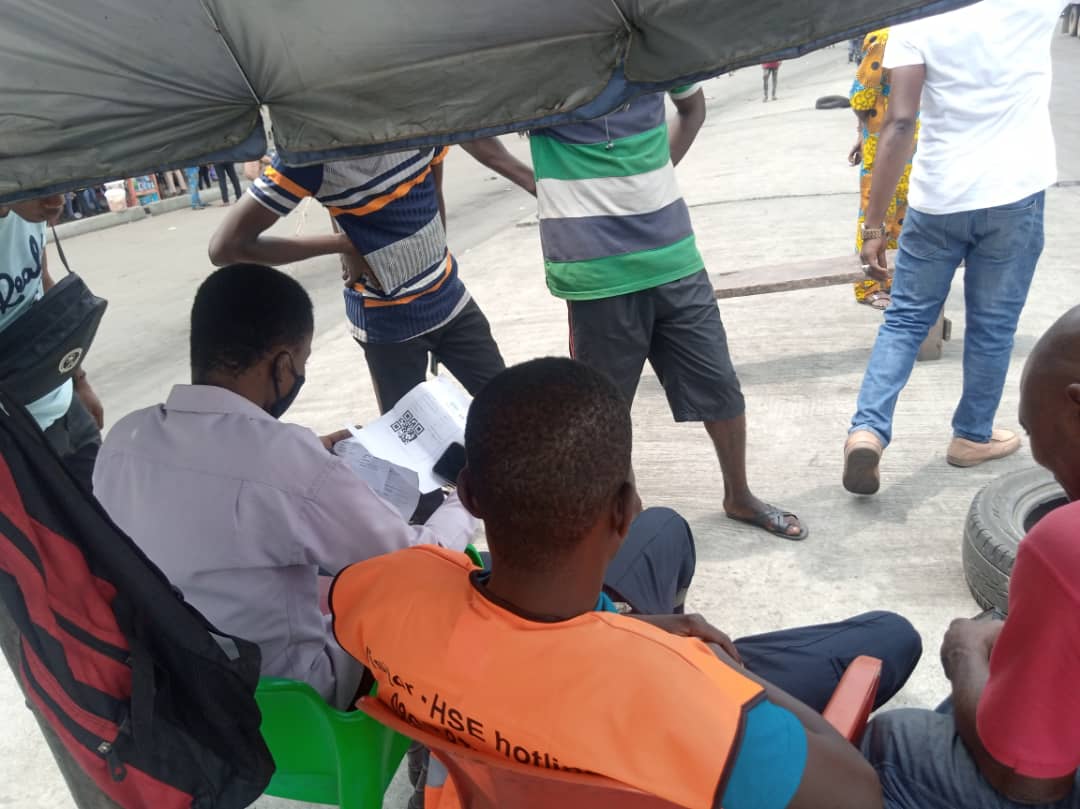
With the call-up system, truck movement is scheduled from the originating points to a park, then to a holding bay/pre-gate, and then programmed in batches (on a first-come-first-served basis) to access the ports. Thus, all trucks are expected to remain within approved parks until they are scheduled to access the ports or are moving from one park to another.
This means trucks with no business at the port must avoid the area while empty containers are parked at Truck Transit Park (TTP) at Lilypond, Ijora, among other trailer parks.
Advertisement
A SIGH OF RELIEF FOR COMMUTERS
Abraham Sunday, a bike man who operates around the Apapa corridor, commended the development saying trucks no longer park at will around the ports.
“They have sent the trucks away from the port area and that is a very good thing. They already told them that they shouldn’t be parking anyhow except when they are needed,” he said.
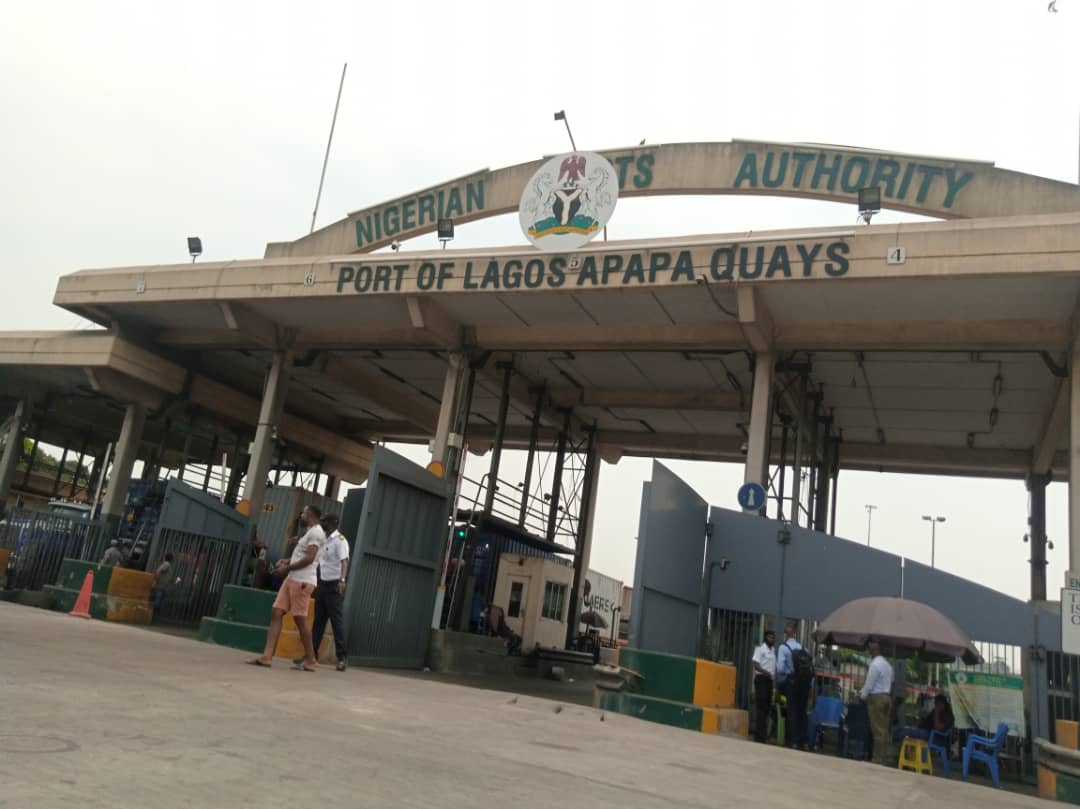
Advertisement
Also, Kehinde Olaniyan, a truck driver who spoke with TheCable, said the process is now better compared to what was previously obtainable. He, however, cautioned against the use of undue influence in the electonic call-up system, saying such act may disrupt the process.
“The process is better and easier because the traffic congestion has reduced. I want it to continue this way so they shouldn’t start using influence to scatter it. Because a time might come and they will start using influence in the name of authority, but if it continues this way then there won’t be a problem,” he said.
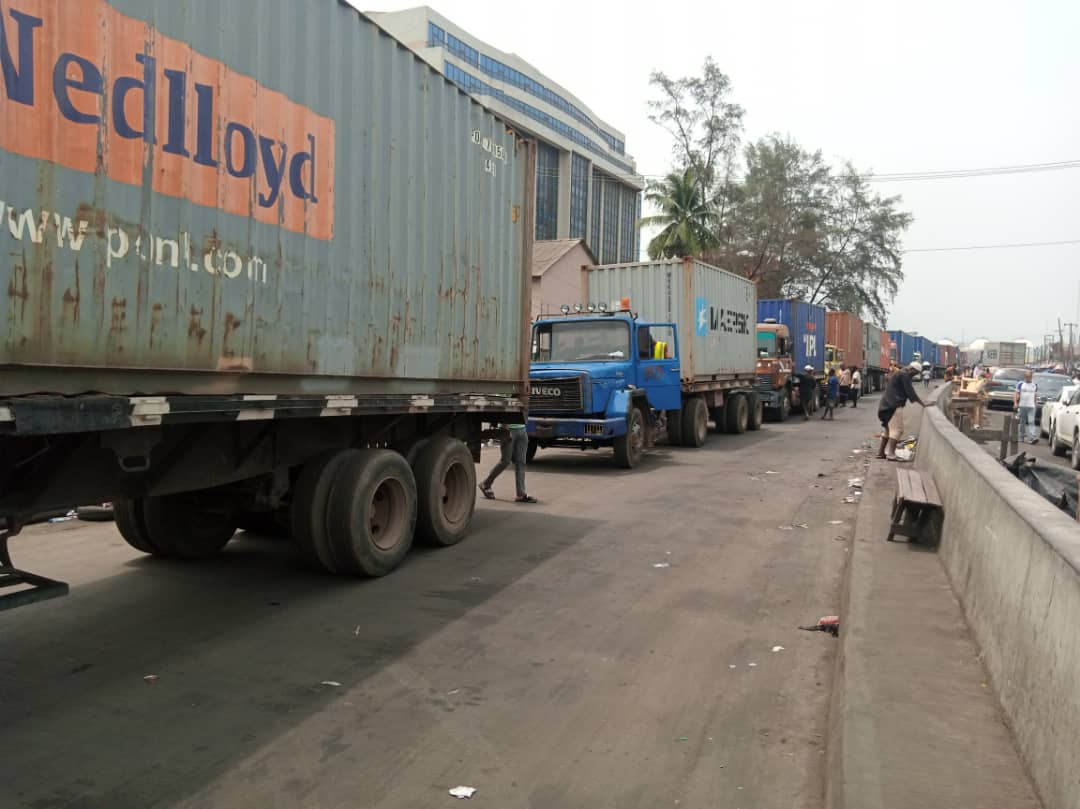
“We get our papers at Lilypond so when it is ready and signed, they will pass it on and we will now come here.”
Advertisement
TheCable gathered that security operatives had embarked on a clearance exercise at the port on Saturday. Truck drivers and roadside sellers in the port area were sent away to enable a decent and clean environment.
For Joy, who sells recharge card, the development is still commendable as it hardly affects her business but controls congestion in the port area.
Advertisement
Unlike Joy, Folake Olanrewaju, a widow who sells drinks the roadside, said her business has been affected by drop in sales as the truck drivers have been asked not to visit the area except when they have been cleared through the Eto app.
However, Olanrewaju hailed the electonic call-up system, saying it has reduced dirt and promoted decency in the port environment.
Advertisement
“What NPA is doing is good. The truth is that some of us selling in the corridors of the ports are dirty and some of these truck drivers pass waste around the port, which is not good,” she said.
“Although police are overdoing compliance because they came last week and sent truck drivers and roadside sellers away. They were shooting into the air but no one was armed or killed. The NPA is doing well because as you can see this place is now neat.
Advertisement
“There is no traffic and trucks are entering the port one after the other, there is no noise. But I want to appeal to the government that they should help us with a market around the port area so we can establish our business.”
MIXED REACTIONS FROM TRUCK DRIVERS
While the call-up system has been commended in several quarters, some truck drivers believe the development has reduced commercial activities due to bureaucracy.
Olajide Abiodun, a driver, said the system shows that the government is making things difficult for its citizens as different solutions have been previously applied to end the traffic congestion in the past.
“Lilypond is where they ask us to park now. Things are now hard and the process is now slow. The government is just using us. We are to first proceed to Lilypond to submit our papers and park our trucks then after the call up is done, we would proceed to the port. It has made things difficult and stressful,” he said.
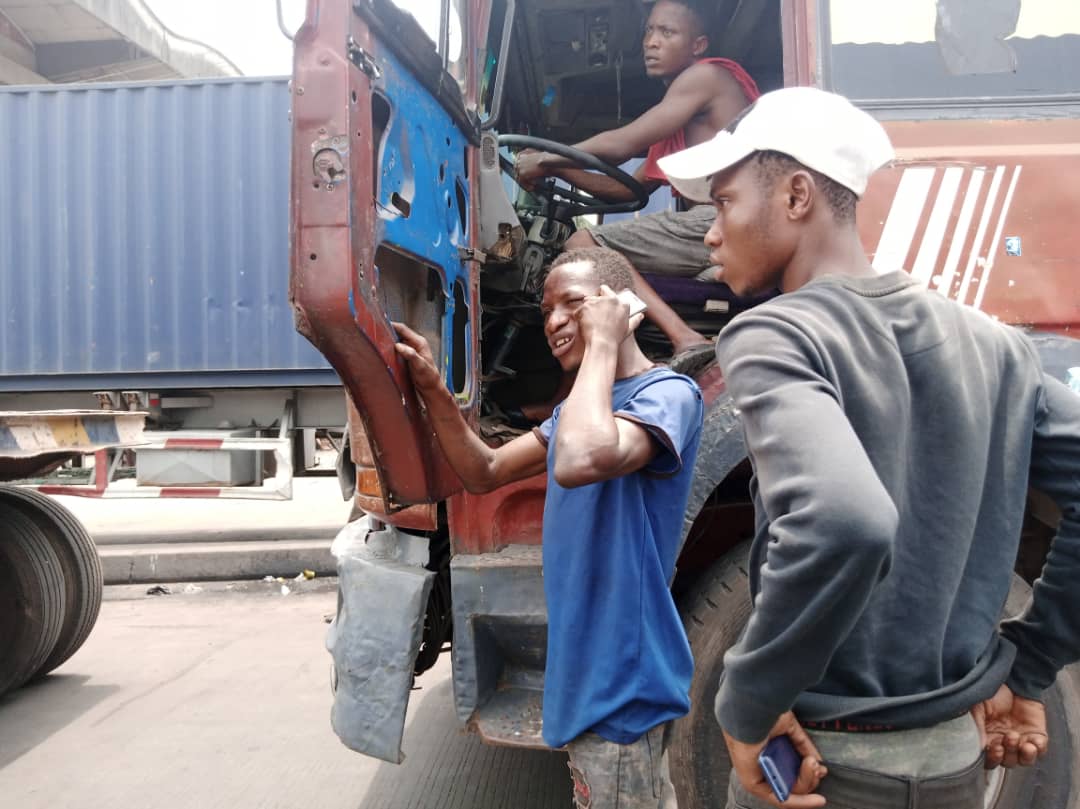
Demola Lawal, another driver, said the process is not easy. He said; “I don’t think it is needed at all. They should allow us continue the way we used to. Now you can see that we are just here waiting, things are not as good as it should be”.
However, Ibrahim Yusuf, a transporter who was awaiting to access the port when he spoke to TheCable, said the process is not as difficult as some of his colleagues claim.
He noted that some people encounter difficulty using the Eto application, saying adequate measures should be put in place to address those concerns.
“It isn’t hard for now. I feel it is better than the way we used to operate. The challenge there is the issue of poor server in booking on the call up application. If you go to Lilypond in Ijora now, you would see that a lot of people are not allowed in because they are yet to register due to poor server,” he said.
“But it has reduced traffic on the road. Before you would have seen a lot of containers here. Some people would go in and park without doing anything. Some would say they don’t have work yet or that thy want to go and eat. But now, if you don’t have a valid reason to go in, you won’t be allowed in.”
Olatiwon Mutahhiru, a resident in the area, also warned against undue influence and corruption in the system.
“We thank God things are better. Before this line (pointing to a queue of trucks awaiting to enter the ports) does move at all. It will just be static. Some truck wouldn’t have work to do but you will find them here. But where they are now, if government can sustain it without any corruption it will be better,” he said.
TheCable also observed a high number of suspected hoodlums around the Apapa road as some of them engaged in a “street brawl” on Thursday when the reporter navigated the area.

Also the road leading to Apapa port from Mile 2 remains in a poor state. Car owners often find it difficult to navigate their way to and from the port, leaving leaving road users with no option than to patronise okada riders, thereby endangering their lives in the process.
LAGOS GOVT: INDISCRIMINATE PARKING NO LONGER ALLOWED IN APAPA
Babajide Sanwo-Olu, governor of Lagos, had warned that individuals and organisations benefitting from the traffic gridlock in Apapa and Tin Can Island ports will be named and shamed. He said the state government will charge anyone who attempts to destroy the new process to court.
In a phone conversation with TheCable, Toyin Fayinka, special adviser to the governor on transportation, said the government has provided adequate trailer parks to truck to wait before they are called upon.
Fayinka said the government will not tolerate indiscriminate parking at the port, adding that the process will be sustained to eradicate the congestion in Apapa.
“There will be zero tolerance for truck parking on the road indiscriminately. So if you don’t have a business in the port, don’t come to Apapa because there won’t be space for you on the road,” he said.
“Also, there has been adequate provision of trailer parks. So once you get your electonic call-up, you will wait in one of the parks until the coast is clear for you to enter the port. I don’t control port or parks but I control the free flow of traffic. We are just starting and we shall continue to tell truck drivers about the need to comply.”
Although, the roads leading to the Apapa area are still congested with trailers coupled with their poor infrastructure condition, the port area has been cleared of the gridlock which the environment is known for.
Residents believe the commencement of the electronic call-up system remains a positive development which needs to be sustained.
